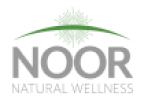What do Multivitamins do? 5 Benefits of Multivitamin
Jul 13, 2021
Macronutrients are needed in abundance in the body, compared to its micronutrient counterpart. Macronutrients are comprised of protein, carbohydrates and fat, whereas micronutrients are vitamins and minerals. Protein in particular, makes up 20% of our body weight and is the primary component of our hair, skin, eyes and internal organs like the heart and brain. It’s needed for the maintenance of body tissues, and is extremely important during the developmental stages of childhood and pregnancy, as well as lactation.
With the abundance of wealth and resources in this world, it is unfortunate to say that much are impoverished and experience a lack of protein. Symptoms of not enough protein in the diet include weight loss, fluid retention, stunted growth, weakness, hair loss and an inability to heal wounds.
In this article, we will discuss 5 things to consider taking protein supplements
Unbalanced Diet
If you struggle with eating a balanced diet. If you are always on the go and tend to pull more towards sugary carbs, soft drinks and the occasional burger, you may want to consider incorporating a protein shake in your diet. Its quick and easy to make and you can take it anywhere on-the-go. Another great thing is that you can add a variety of ingredients, like greens powder, extra fiber, fish oil etc. to help offset nutrient lack and create a wholesome, satiating and healthy shake.
Vegan Diet
Vegans do not consume meat, but that is not to say that meat is the only protein source. The problem is, vegan proteins need to combine certain foods to create a complete protein; which contain all 20 amino acids. When combining vegan proteins, you want to eat legumes and grains together (like brown rice and kidney beans; as they carry different types of amino acids that will come together and create a complete protein. Complete vegan proteins include Spirulina, Tempeh, Ezekiel Bread or vegan protein powder.
Aging
As we age, many things in our bodies begin to change. We lose muscle mass, develop a smaller appetite and have lower energy needs. All of this has been linked to the elderly not getting enough protein in their diet. According to a recent study, 46% of the roughly 12,000 adults that participated, over the age of 51 are not consuming enough protein and are also deficient in the recommended daily intake of vitamins. Protein is just as important in the older stages of life and protein shakes can contribute to weight maintenance, brain and heart health.
Body Building and Weight Training
The muscles thrive on protein, in fact, they’re made of protein; specifically, BCAA’s. These branch chain amino acids are the building blocks of rapid muscle growth when coupled with a regular weight training regimen. A single protein is made up of 20 amino acids, with each having their own individual and collective function. BCAA’s are made up of 3 amino acids, L-leucine, L-Isoleucine and L-Valine. This supplement is usually available in powder form and can be mixed in with a shake or water and drunken before a weight training workout. BCAA’s are also great for increased energy, metabolism, enhanced athletic performance and muscle repair after a workout.
Weight Loss
Losing weight has been a struggle for many and protein supplements can assist with that. whey protein powder is a great way to keep you satiated and feeling full to avoid snacking on sugary snacks throughout the day. Drink a shake in replace of a meal and opt out of the extra calories and fat.
All in all,
Protein is essential and needed in abundance, no matter where you are in the developmental stages of life. On average the adult male and female need between 45g – 60g of protein a day. This number will vary based on individual needs but as you can see, it is a much higher number than any RDA for a micronutrient like vitamin C. Excess protein can cause uric acid build up, which can develop into Gout, while protein deficiency can lead to muscle wasting and in extreme cases, death, if not received in adequate amounts.
Other than meat, protein is abundant in plant-based foods. High protein foods include lentils, broccoli, nuts, mushrooms, almonds, legumes, quinoa and all other whole grains.
If you know you are not getting enough protein, try a healthy whey or vegan protein shake from Noor.
Check out this hearty protein shake recipe below (Serves 2)
- 3 cups of nut milk or coconut water
- 1 ripe banana
- 2 cups of strawberries
- 1 scoop of Noor Vanilla Vegan Protein
- 1 tsp of peanut butter
- ¼ cup of oats
- 1 tsp of Spirulina Powder
Blend for 2 minutes, pour and enjoy!

